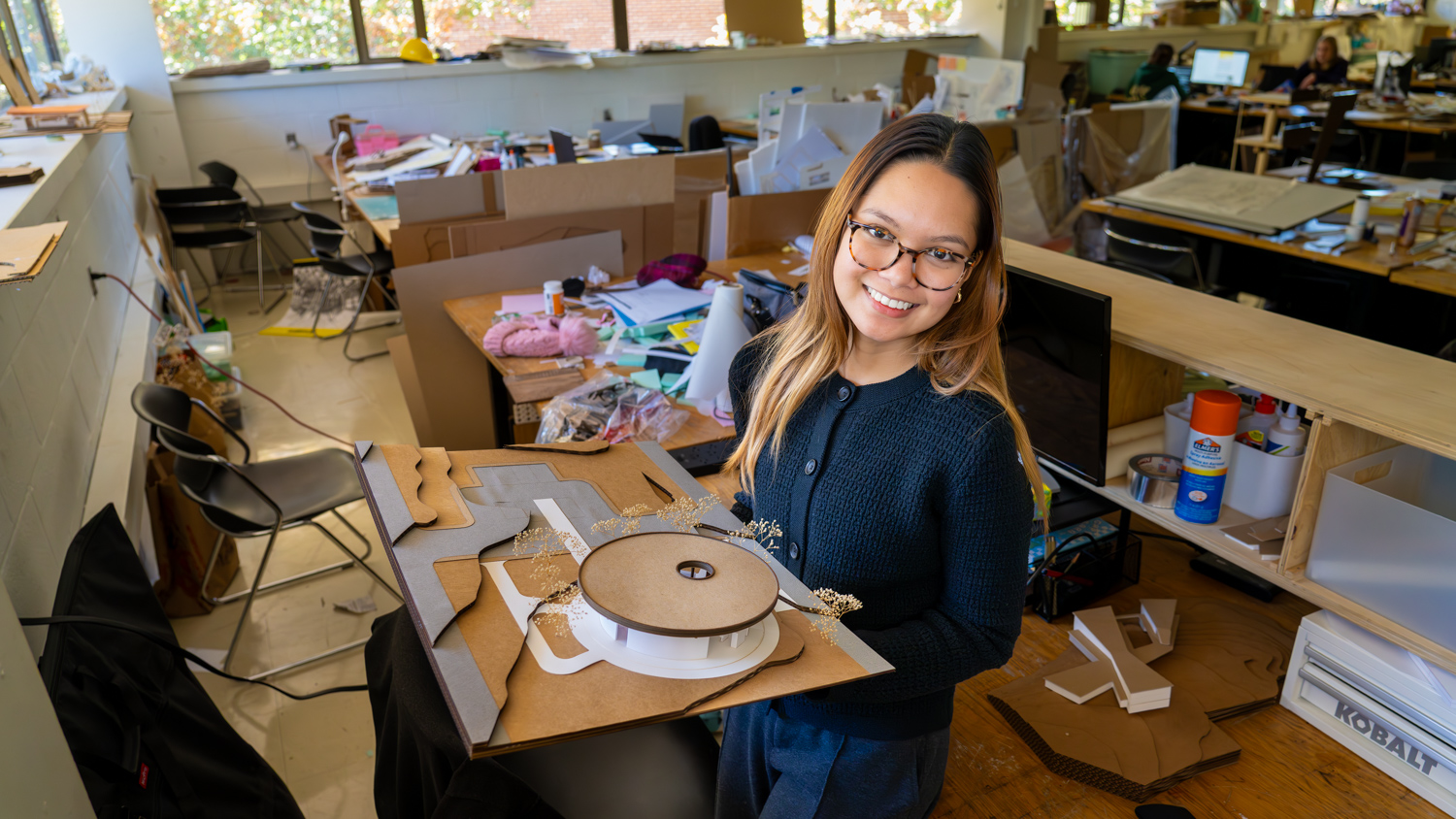As we enter a fresh semester, we are presented with a fresh array of challenges. Juggling academic commitments, studio sessions, internships, employment, and personal matters can potentially result in accumulating stress, anxiety, and even depression.
Emily Burdo, LCSW, has taken on the role of a full-time embedded counselor at the College of Design. In her new capacity within the college, Burdo’s primary objective is to establish an inviting environment for personalized emotional support. Additionally, she aims to equip students with the necessary resources to explore various avenues of mental health assistance.
What’s your role at the college?
I am a full-time mental health provider at NC State who is dedicated to the College of Design. My official title is “Embedded Counselor” – Embedded Counseling is the same as the counseling services offered at the Counseling Center, only the counselors have offices within the college.
This allows me to become familiar with the specific demands and culture of the school, as well as become a familiar face around the college. My goal is to destigmatize accessing mental health care and support students (and faculty!) in practices to increase mental well-being.
Tell us a bit about your background – what brought you into counseling?
After growing up in the Adirondacks of Northern New York, I graduated from Syracuse University with a Master of Social Work and a Certificate of Advanced Study in Trauma Informed Practice. I attended a state school (SUNY Plattsburgh) for undergrad, earning a bachelor’s of psychology.
I’ve known I’ve wanted to be a therapist for as long as I can remember, and am now a Licensed Clinical Social Worker (LCSW). I have a passion for hearing people’s stories and working with them to become the best versions of themselves. I believe that you don’t have to have something “wrong with you” to access mental health support – it can and should be something you can engage in to grow, no matter your starting point.
What kinds of challenges can students come to you for assistance with?
Students can access me for support around anything that may be concerning or distressing to them; personal issues, relationship challenges, academic, and professional concerns are some of the main things students come in for. I offer individual counseling here in Brooks Hall, both in person and virtually.
Students also retain full access to the Counseling Center, where there are a multitude of other resources available. This can look like more specialized individual support, groups, workshops, psychiatry and case management to support with campus and community resources.
Overall, I am here to support students with anything that will make a meaningful difference in their life, no matter how “big” or “small” it might seem.
Is there anything specific to the College of Design that makes you particularly excited to work with students?
I am in awe of the talent and passion of the students in the COD. I think the students have such an interesting blend of artistic vision and technical talent. I understand how dedicated these students are and how that can translate to long hours in studio and how personal the product of your work can feel. I’ve always enjoyed working with creative minds and I’m excited to see the amazing projects COD students are working on.
How can students get in touch with you?
Students can access my services in two major ways.
1.) Drop-In Hours: I hold drop-in hours in my office (Brooks 117D) on Tuesdays 11-1 and Fridays 12-2. During this time, students can speak one-on-one with me and get brief counseling support. I can also help students get set up with services at the Counseling Center during this time.
2.) Students can initiate the process online by making an appointment and completing paperwork here. They will meet with a screening counselor who will help them create the best plan for their specific needs.
For some students, this may be meeting with me, or another counselor who matches the identity preferences of the student. For others, this may look like doing a skills workshop, joining a group, or getting connected with other campus or community resources.
No matter the method of accessing services, we want students to get the best individualized care they can have. Whether they go through the Counseling Center or through me at drop-in, students will work with a professional to create a plan of action they are comfortable with.
For more information on how to access mental health care at NC State, visit the Counseling Center and Wolfpack Wellness websites for a full list of resources.
- Categories:



